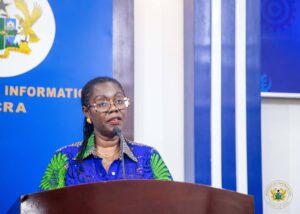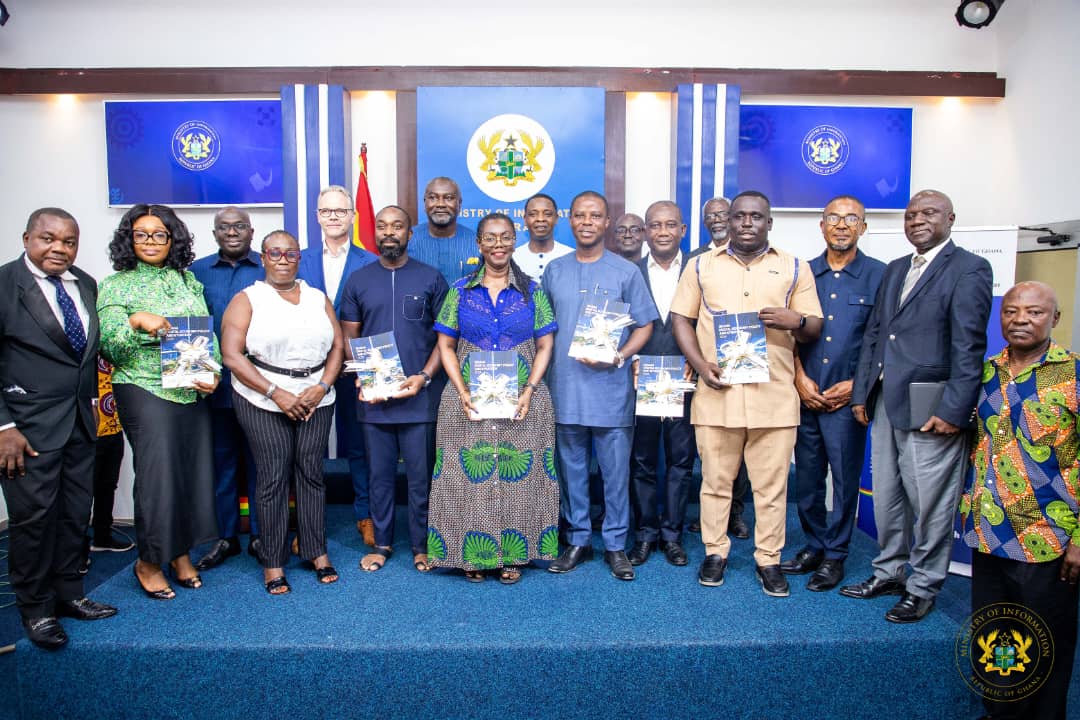adverts
The Minister for Communications and Digitalisation, Honourable Ursula Owusu-Ekuful, has launched Ghana’s Digital Economy Policy and Strategy, a comprehensive plan to leverage digital technologies for economic growth, improved public services, and equitable access to digital resources.
Speaking at the launch in Accra, Hon. Owusu-Ekuful described the initiative as a transformative step in Ghana’s journey toward becoming a fully connected and inclusive digital economy.

adverts
The minister highlighted significant achievements, including:
- 3,500 kilometres of fibre optic cables laid in 2023 to enhance connectivity.
- 951 public institutions are now linked to a high-speed eGovernment network.
“These milestones are crucial in bridging the digital divide and ensuring that no Ghanaian is left behind in the digital age,” she said.
The policy focuses on five core areas:
- Entrepreneurship: Fostering innovation and creating digital businesses.
- Digital Skills: Equipping citizens with tools for the digital era.
- Digital Government: Enhancing efficiency and transparency in public services.
- Universal Access: Expanding connectivity nationwide.
- Emerging Technologies: Leveraging cutting-edge tools for development.
By addressing these pillars, the strategy aims to reduce poverty, create jobs, and drive sustainable economic growth.
Hon. Owusu-Ekuful explained that the initiative aligns Ghana’s digital efforts with broader economic needs, ensuring technology becomes a tool for inclusive development.
“Through digitalisation, we can foster entrepreneurship, improve service delivery, and unlock opportunities for all Ghanaians,” she noted.
The minister called for enhanced public-private partnerships to address connectivity gaps, citing the support of the World Bank and the Tony Blair Institute as examples of successful collaboration.
She also stressed the importance of adaptive regulations to protect citizens from challenges like fraud, misinformation, and cyberattacks while fostering innovation.
“This strategy is our blueprint for a prosperous and digitally inclusive Ghana,” she concluded.
The launch underscores Ghana’s commitment to leading Africa’s digital transformation and creating a future where technology drives inclusive growth and development.


